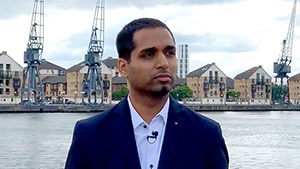“I prefer to stay out of politics.” That is what Elon Musk said last month in response to Texas state governor Greg Abbott’s claim that the Tesla CEO supported the state’s anti-abortion laws.
Whether the availability of medical care and the option to terminate a pregnancy can be classified as politics, is a separate debate altogether. Yet, Musk has for long, toyed with opinions on topics that would sit quite easily within the realm of politics.
Perhaps he should have taken his own tweets seriously. As things stand, a lot of the opinions he has graced the world with have caught the attention of the United States government. As a consequence, a national security review criteria for all the deals made by Musk’s companies is being mulled by the Joe Biden administration, according to a Bloomberg report.
However, there has been no official statement on the matter, by the government or any of Elon Musk’s companies, so far.
What does a national security review mean?
One of the options for the US government is the CFIUS, or Committee on Foreign Investment in the United States, which is an inter-agency panel to review any business deals or acquisition of US businesses that include foreign buyers.
“By reviewing, assessing, and controlling the flow of foreign investment into industries significant to the US national security, CFIUS gives the President agency to steer financial and technological flows with national security objectives in mind,” think tank Center for Strategic and International Studies said.
An example of this would be Musk’s Twitter deal, which potentially includes foreign investors as well, reportedly including Binance Holdings Ltd, a Chinese-owned digital asset exchange and Qatar’s Sovereign Wealth Fund.
At this time, the CFIUS does not have a review policy in place for American businesses investing in or acquiring businesses in other countries, though there are plans to have a mechanism in place.
The composition of CFIUS includes Department of the Treasury (chair), Department of Justice, Department of Homeland Security, Department of Commerce, Department of Defense, Department of State, Department of Energy, Office of the US Trade Representative, and the Office of Science & Technology Policy.
“Transactions that have triggered CFIUS’s scrutiny have ranged from the obvious (the acquisition of a US business with federal defence contracts) to the seemingly benign (investments in offshore windfarm projects),” according to law firm Cooley’s latest review of the CFIUS.
A negative observation by the CFIUS is often enough to quash a potential business deal. “If a national security concern is identified, CFIUS will initiate an investigation to recommend if the president should approve, disapprove, or approve the transaction with mitigation measures,” adds the CSIS.
But how did it come to this?
Also Read:World’s richest man Elon Musk predicts how long recession will last
Geopolitical analysis on Twitter: Beyond opinions?
In the past few weeks, Musk, a self-described free-speech absolutist, has not shied away from sharing opinions about matters involving global politics. Even before that, he has dabbled with political opinions, quite regularly – claiming Twitter has a “left-wing bias” (in May this year) and criticising the Democrats’ (governing party in the US) policies.
His suggestions include how China should take limited control of Taiwan as they are engaged in a standoff. He even suggested Crimea, a region in Ukraine which Russia annexed a few years ago, belongs to Russia.
Immediately later, he said SpaceX was losing a lot of money on the Starlink satellite internet service in Ukraine, an essential communication medium in the country, and threatened to stop deploying the service unless funded by US taxpayers. After facing criticism, the application for taxpayer support was withdrawn and Musk said service will continue as is.
But it is obvious for the government to be worried, considering this coincided with Musk’s suggestions about Crimea and soon after, the supposed solution for finding peace between China and Taiwan.
Twitter’s on-off-on takeover is still a mess
This week, Musk said that once the Twitter takeover is complete (if at all), around 75% of the social media company’s existing workforce will be fired. Legal proceedings aside, Musk has a deadline to close the Twitter deal by October 28.
Such statements lend credence to any observations that the $44 billion deal may proceed quicker than many expected, particularly after the legal moves by both sides over the last few months. Musk, having realised that he may be overpaying for the social media network, will now double down on cost savings and increase profitability (might be a tougher challenge with a much smaller workforce).
Has the EV snub hurt?
Speaking of topics that sit easier within the political realm — electric cars, intertwined with policies about the environment. Last year, the Biden administration spoke with carmakers in the US about the push for electric and alternate fuel vehicles. That includes sales of electric, fuel-cell and plug-in hybrids to account for 50% of car and light truck sales by 2030; this has since been signed as an executive order.
“Yeah, seems odd that Tesla wasn’t invited,” tweeted Musk responding to a user who pointed it out. It is surprising how a White House meeting with carmakers to push for electric vehicles in the country did not include Tesla.
Data tells us the picture. Between January and September this year, Tesla Model Y (191,451) and Tesla Model 3 (156,357) are the runaway leaders and that’s a continuing trend, while the third placed Ford Mustang Mach-E clocked 28,089 units sales during this period.
There has neither been an official statement on this from the US government yet, nor from Elon Musk.







